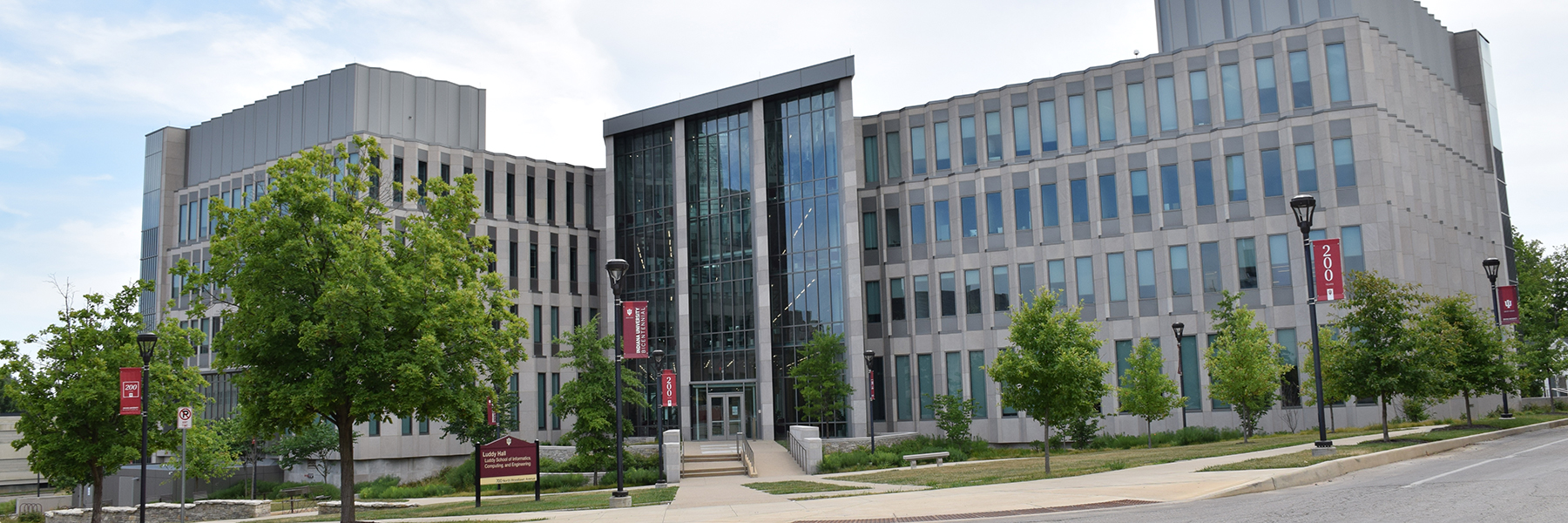The Critical Question for Data Science
The Critical Question for Data Science to Answer in the Next 10 Years
🗓 Posted November 20, 2019 by Dr. David Wild, Crisis Technolgies Innovation Lab (CTL) Co-director

As a professor in one of the leading integrated technology and computing schools in the country, my job demands that I spend much of my time thinking about how things are going to be in the coming decades, and how to help us get there through research and educating the leaders of tomorrow.
Ten years ago, it was clear that we were on the brink of a revolution - the data revolution - fueled by huge increases in data production and unprecedented leaps forward in our ability to use that data to think about old problems in new ways through artificial intelligence (AI) and machine learning. Existing industries would be disrupted and upended by new data-driven paradigms, with all companies becoming at heart data companies. Completely new businesses and opportunities would arise that would be impossible without these new drivers and capabilities. Our response at Indiana University included creating one of the most intellectually diverse and innovative Data Science programs, which now has more than 600 online and residential graduate students with a brand new undergraduate program starting up. My own research lab, with its roots in data-driven healthcare, became the Integrative Data Science Lab, because to use all this data in new ways would require an understanding of how to integrate it all together with new kinds of algorithms to get insights from data across disciplines and domains.
We are now living that 2019 world, where data is often considered of more value than things themselves. Relics of the old world - hotels, shops, drug companies, personal cars are uncomfortably cohabiting with AirBnBs, drone deliveries, AI-driven healthcare companies and self-driving Teslas as we try to figure out what it all means and how we sensibly transition into this new paradigm. We are hopeful that we will reap benefits from the new technology while realizing that technology is also responsible for our biggest challenges: climate change, fake news, technological fragility, loss of privacy, and the health hazards of a sedentary lifestyle eating processed foods.
What is on the 10-year horizon now? What do we need to do now to prepare our students and citizens for the coming decade and beyond? What are the right questions to be asking? I believe the the most important question for us to ask is this: How can data and technology help us thrive as a society, overcoming the huge challenges we face? The challenges are immense and multi-faceted, requiring not just data science and computing skills, but bringing those skills together with social science, design thinking, ethics, policy, medicine, emerging understandings of risk and resilience, and, yes, politics. We need to understand our individual, local, regional and national risks from disease, poor health, climate change, political instability, and technology dependence. We need to understand our resilience to these things - how to mitigate disasters and disease and how to overcome. We need to find ways to adjust for terrible inequities between people. We need to experiment with new ways not just of doing business, but of living and thriving.

At Indiana University’s Luddy School of Informatics, Computing, and Engineering, we are designing, thinking about, researching and teaching about this tomorrow. We are planning for a world where technology can help the next generations flourish, despite the challenges. Our school represents an incredible breadth of capabilities, with faculty as diverse as mathematicians, sociologists, psychologists, anthropologists, ethicists, and data scientists. Our newly announced Luddy Center for Artificial Intelligence will pursue breakthroughs in healthcare using data and technology - digital health. The OSoMe Center is using advanced machine learning technologies to identify fake news and disinformation campaigns. The Crisis Technologies Innovation Lab that I recently cofounded will help us find new ways to manage risk of and resilience to disasters, and to help crisis and first responders scale to the impacts of climate change.
It is sometimes hard to be optimistic given the challenges the world is currently facing. But as a researcher and educator whose job is to look to the future I am optimistic. Humanity is amazing and resilient, and the new technologies and capabilities we are now realizing, the things that were science fiction when I was a child, can be the drivers of a better world to come. This is the 2029 we are working towards.